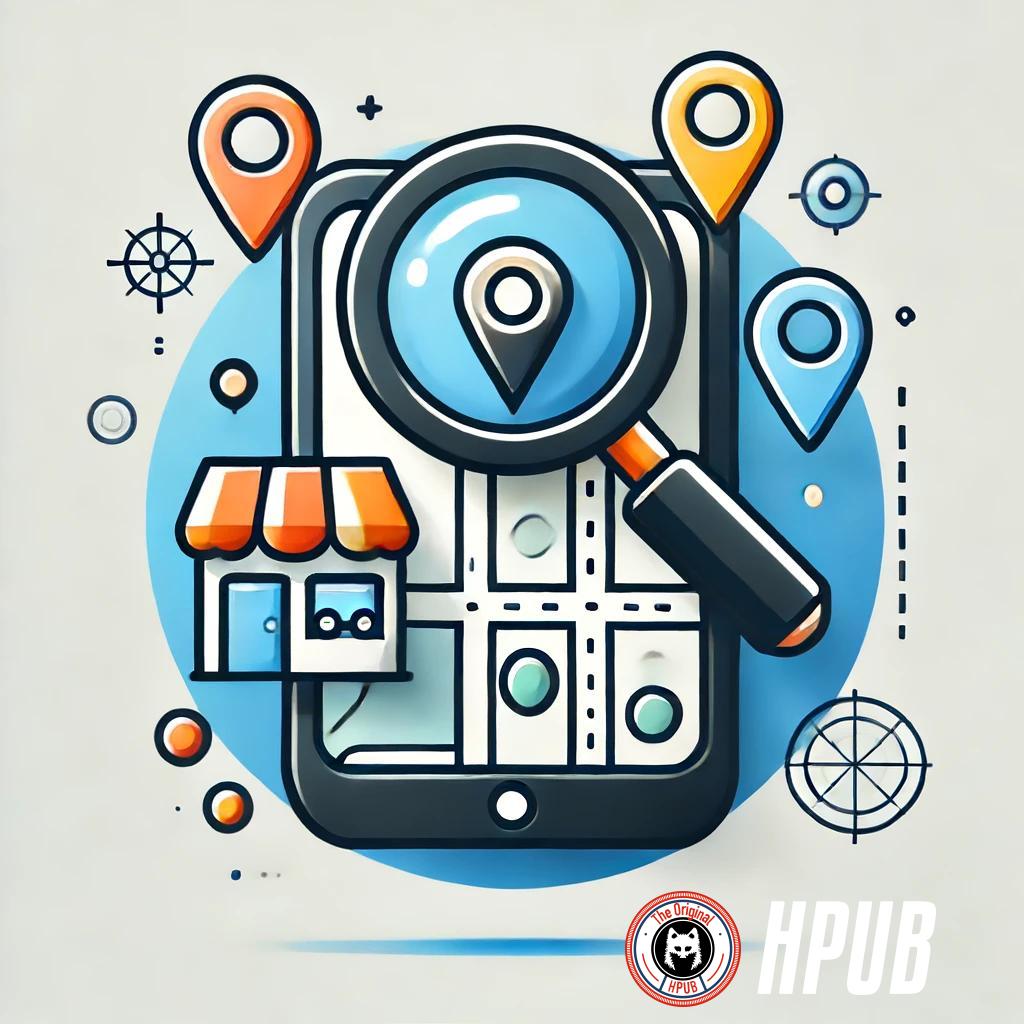Generating local leads is crucial for businesses aiming to thrive in their communities. Local leads are potential customers within a specific geographic area who are more likely to convert into paying customers. Effective local lead generation can significantly boost your business’s visibility and sales. This post will explore various strategies and tools to help you generate local leads efficiently. From leveraging social media and SEO to utilizing Google My Business and email marketing, we’ll cover all the essential tactics. We’ll also discuss the importance of customer reviews, content marketing, and paid advertising. By the end of this post, you’ll have a comprehensive understanding of how to attract and convert local leads.
What Are the Best Strategies to Generate Local Leads?
 Generating local leads requires a mix of traditional and digital marketing strategies. Start by optimizing your website for local search. Ensure your business name, address, and phone number (NAP) are consistent across all online platforms. Use local keywords in your content to attract local traffic.
Generating local leads requires a mix of traditional and digital marketing strategies. Start by optimizing your website for local search. Ensure your business name, address, and phone number (NAP) are consistent across all online platforms. Use local keywords in your content to attract local traffic.
Networking is another powerful strategy. Attend local events, join community groups, and participate in local business associations. Building relationships within your community can lead to valuable referrals.
Offer promotions and discounts to attract local customers. Use geo-targeted ads to reach people in your area. Collaborate with other local businesses for cross-promotions.
Utilize local media. Get featured in local newspapers, magazines, and blogs. Press releases about your business can also attract local attention.
Lastly, engage with your community on social media. Share local news, events, and stories. Respond to comments and messages promptly. Building a strong local presence online can significantly boost your lead generation efforts.
How Can Social Media Help in Local Lead Generation?
Social media is a powerful tool for local lead generation. Platforms like Facebook, Instagram, and Twitter allow you to connect with your local audience directly. Start by creating a business profile on these platforms. Ensure your profile is complete with your business name, address, and contact information.
Use geo-targeted ads to reach people in your area. Facebook and Instagram offer advanced targeting options that allow you to focus on specific demographics within your locality. Promote local events, special offers, and new products to attract local customers.
Engage with your audience by posting regularly. Share local news, events, and stories. Use local hashtags to increase your visibility. Respond to comments and messages promptly to build a strong relationship with your audience.
Collaborate with local influencers. Partnering with influencers who have a strong local following can help you reach a wider audience. They can promote your products or services to their followers, generating more local leads.
Lastly, encourage your customers to share their experiences on social media. User-generated content can significantly boost your credibility and attract more local leads.
Effective Use of SEO for Local Businesses
SEO is crucial for local businesses. Start by optimizing your website for local search. Use local keywords in your content, meta descriptions, and titles. Ensure your business name, address, and phone number (NAP) are consistent across all online platforms.
Create a Google My Business profile. This will help your business appear in local search results and on Google Maps. Encourage your customers to leave reviews on your Google My Business profile. Positive reviews can boost your local search rankings.
Use local backlinks. Get featured in local newspapers, blogs, and directories. These backlinks can improve your website’s authority and local search rankings.
Optimize your website for mobile. Many local searches are conducted on mobile devices. Ensure your website is mobile-friendly to provide a better user experience.
Lastly, create local content. Write blog posts about local events, news, and stories. This can attract local traffic and improve your local search rankings.
How to Leverage Google My Business for Lead Generation?
Google My Business (GMB) is a powerful tool for local lead generation. Start by creating a GMB profile. Ensure your business name, address, and phone number (NAP) are accurate and consistent with other online platforms.
Add high-quality photos of your business. This can attract more views and clicks. Regularly update your profile with new photos, posts, and offers.
Encourage your customers to leave reviews on your GMB profile. Positive reviews can boost your local search rankings and attract more local leads. Respond to reviews promptly to show that you value customer feedback.
Use GMB posts to share updates, promotions, and events. These posts appear in your GMB profile and can attract more local leads.
Lastly, use GMB insights to track your performance. GMB provides valuable data on how customers find your business and interact with your profile. Use this data to optimize your GMB profile and improve your local lead generation efforts.
What Role Does Content Marketing Play in Local Lead Generation?
Content marketing is essential for local lead generation. Start by creating valuable and relevant content for your local audience. Write blog posts about local events, news, and stories. This can attract local traffic and improve your local search rankings.
Use local keywords in your content. This can help your content appear in local search results. Ensure your business name, address, and phone number (NAP) are consistent across all online platforms.
Share your content on social media. Use local hashtags to increase your visibility. Engage with your audience by responding to comments and messages promptly.
Collaborate with local influencers. Partnering with influencers who have a strong local following can help you reach a wider audience.
Also, tap into the fan base with the local college or professional team – you can see a great example of this played out with this local roofing repair company in Tuscaloosa – https://tuscaloosaroofing.org – watch how they’ve embraced the Crimson Tide in their marketing.
They can promote your content to their followers, generating more local leads.
Work to integrate into your email marketing campaign.
How to Utilize Email Marketing for Local Leads?
Email marketing is a powerful tool for local lead generation. Start by building an email list of local customers.
Offer incentives like discounts or free resources to encourage sign-ups with your land page builder describes the folks at ThinkTankLab for getting leads.
Segment your email list based on location. This allows you to send targeted emails to your local audience. Use personalized subject lines and content to increase engagement.
Share local news, events, and promotions in your emails. This can attract local traffic and generate more leads. Use clear and compelling calls-to-action to encourage conversions.
Track your email performance. Use metrics like open rates, click-through rates, and conversions to measure your success. Use this data to optimize your email campaigns and improve your local lead generation efforts.
Best Practices for Networking and Community Engagement
Networking and community engagement are crucial for local lead generation. Start by attending local events. This can help you build relationships with potential customers and other local businesses.
Join local business associations and community groups. Participate in meetings and events. This can increase your visibility and credibility within your community.
Offer your expertise. Host workshops, seminars, or webinars on topics related to your business. This can attract local leads and position you as an authority in your field.
Collaborate with other local businesses. Partnering with complementary businesses can help you reach a wider audience. Offer joint promotions or events to attract more local leads.
How to Track and Measure Lead Generation Success?
 Tracking and measuring lead generation success is crucial. Start by setting clear goals. Determine what you want to achieve with your lead generation efforts. This could be a specific number of leads, conversions, or sales.
Tracking and measuring lead generation success is crucial. Start by setting clear goals. Determine what you want to achieve with your lead generation efforts. This could be a specific number of leads, conversions, or sales.
Use analytics tools to track your performance. Google Analytics can provide valuable data on your website traffic, user behavior, and conversions. Use this data to identify what’s working and what’s not.
Track your leads. Use a CRM system to manage your leads and track their progress through your sales funnel. This can help you identify which strategies are generating the most leads and conversions.
Measure your return on investment (ROI). Calculate the cost of your lead generation efforts and compare it to the revenue generated. This can help you determine the effectiveness of your strategies.
Lastly, use feedback to improve. Ask your customers for feedback on your lead generation efforts. Use this feedback to optimize your strategies and improve your results.
The Importance of Customer Reviews and Testimonials
Customer reviews and testimonials are crucial for local lead generation. Positive reviews can boost your credibility and attract more local leads. Encourage your customers to leave reviews on platforms like Google My Business, Yelp, and Facebook.
Respond to reviews promptly. Show that you value customer feedback. Address any negative reviews professionally and offer solutions. This can improve your reputation and build trust with potential customers.
Use testimonials in your marketing materials. Feature them on your website, social media, and email campaigns. This can provide social proof and encourage more local leads to convert.
Share customer success stories. Highlight how your products or services have helped your customers. This can build trust and credibility, attracting more local leads.
Lastly, use reviews and testimonials to improve. Analyze the feedback to identify areas for improvement. Use this information to optimize your products, services, and lead generation strategies.
How to Use Paid Advertising to Generate Local Leads?
Paid advertising is a powerful tool for local lead generation. Start by using geo-targeted ads. Platforms like Google Ads and Facebook Ads allow you to target specific geographic areas. This ensures your ads reach people in your locality.
Use local keywords in your ads. This can improve your ad relevance and attract more local leads. Ensure your business name, address, and phone number (NAP) are consistent across all online platforms.
Promote local events, offers, and products in your ads. This can attract local traffic and generate more leads. Use clear and compelling calls-to-action to encourage conversions.
Track your ad performance. Use metrics like click-through rates, conversions, and ROI to measure your success. Use this data to optimize your ad campaigns and improve your local lead generation efforts.
Lastly, use retargeting ads. These ads target people who have previously visited your website or interacted with your business. Retargeting can remind potential customers about your business and encourage them to convert.
